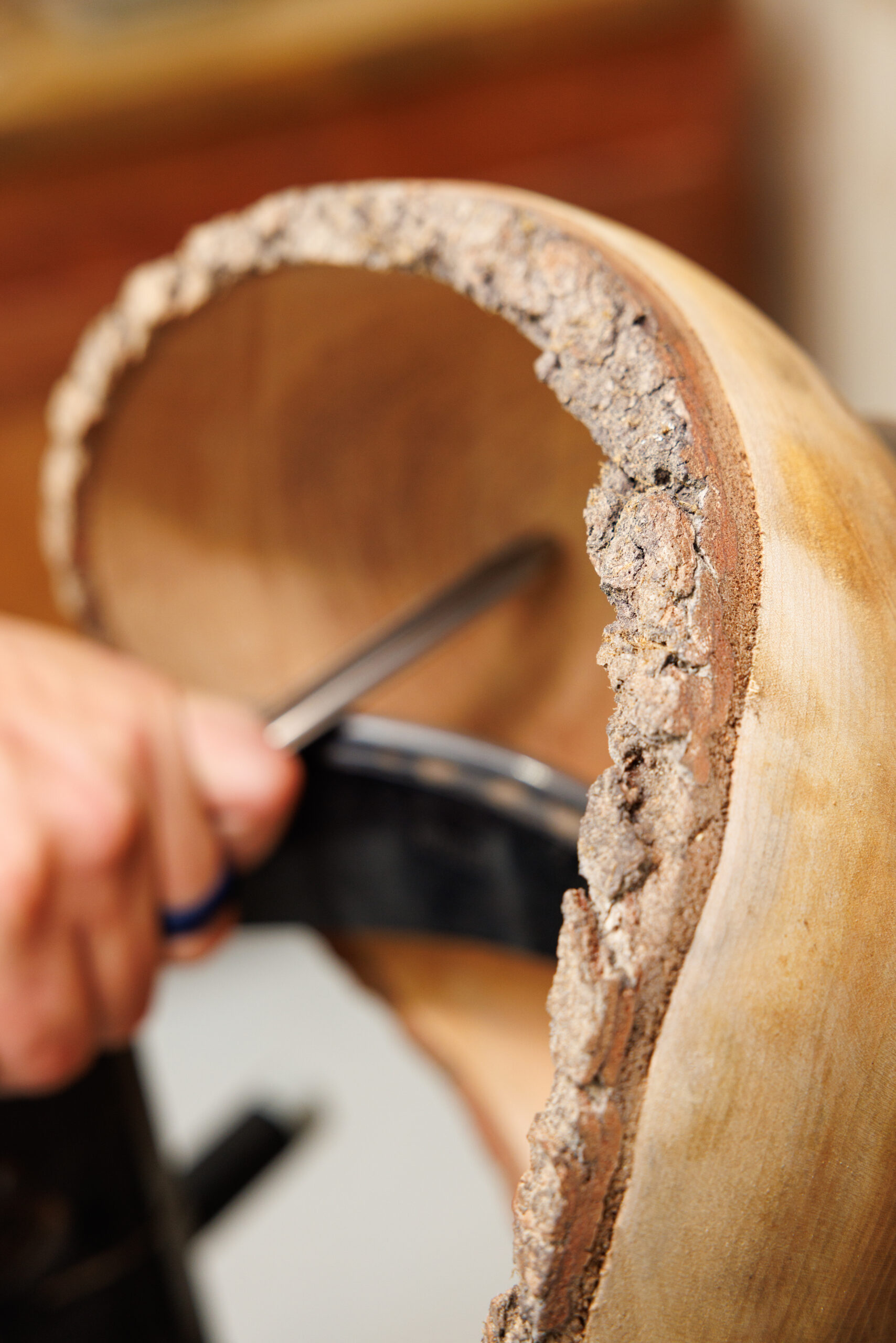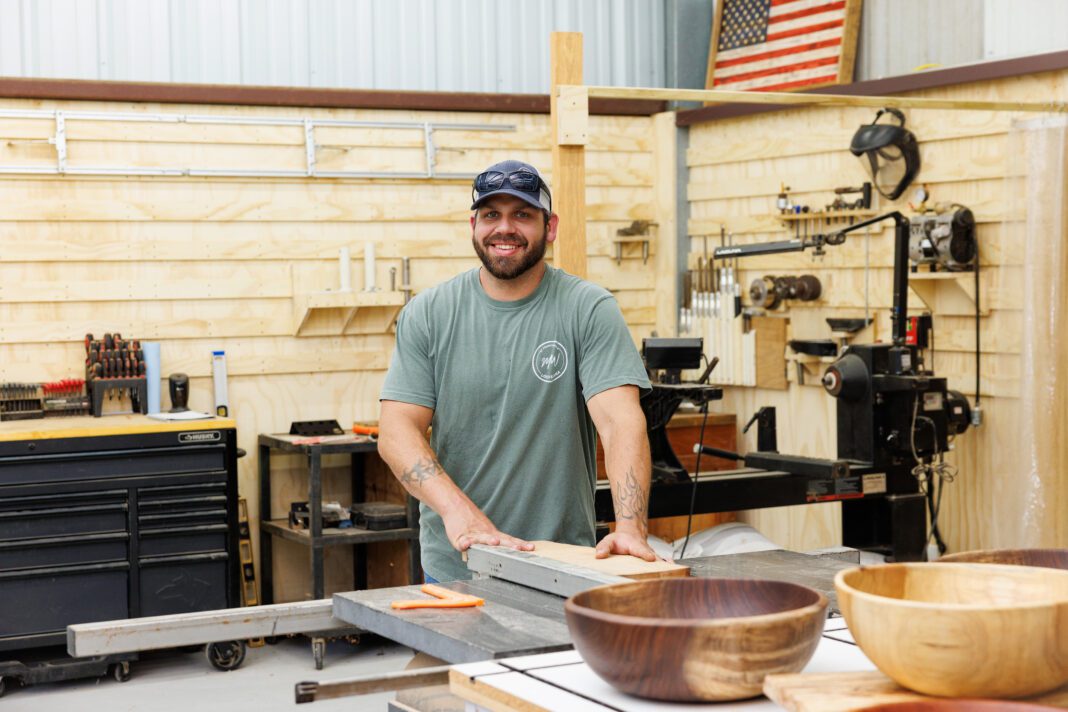The Creatives: Woodworker Jason Malina
Jason Malina
Hometown: St. Francisville, Louisiana
Age: 39
Artistry: Bowl designer, woodworker
Online: @malinawoodworks on Instagram
Behind Jason Malina’s home off a country lane north of St. Francisville are two workshops. One is climate-controlled for drying his wood-turned bowls and for weightlifting year-round without passing out. The other structure is often left open-air, interconnected with the elements and the endless towers of poplar, maple, oak, pines and cherry trees surrounding the property like a crowd of onlookers leaning in close at a party to hear a secret. This one is his more spiritual space.
“I don’t meditate, but I feel like this is the closest that I would get to it, because this focuses my brain,” Malina says. “Nothing else matters when I’m in the wood shop, and all I’m worried about is creating a bowl and looking at the grain.”
Using only downed trees from the area—or black walnut he brought back recently from Arkansas—and wax from nearby beekeepers, each Malina bowl is food safe, sourced, crafted and finished locally, and only available at local markets.
A machinist by trade, Malina bought a lathe from a retiring cabinetmaker about 8 years ago and taught himself the basics of sculptural woodworking.

“I was always drawing when I was younger, and life and work kind of got in the way, and I had stopped drawing like I used to,” Malina explains. “I bought that first lathe just to play around with it, to explore, and one thing led to another, and I kind of fell in love with the craft of it all. Bowls gave me a creative outlet again.”
Now he and his wife, Jeri, offer a continual and creative variety of bowls and boards—typically ranging between $80 and $200. Some are marble smooth. Others are nested with dark mineral veins, curious knots and colorful turns.
“Which one they choose really speaks to their personality,” Jeri says. “Every bowl belongs to somebody.”
With at least eight man-hours put into each, Malina is filled with gratitude when people show appreciation for his handiwork. “I see the log at first, sometimes on the side of the road or fallen in the woods, but I’m actually looking at exactly how I want the bowl to be in my mind,” he says. “It’s a long creative process.”
Malina advises artists to know their worth and value their time when pricing their goods, and to always stay open to exploration.
“You might have to change the direction you’re going in,” Malina says. “With bowls, as the wood opens up, it’s going to tell you what it should be.”










